The inaugural CRIMSA Academic Symposium on the theme "Justice as Law: How Law Creates or Breaks Down 'Justice'" took place on Thursday, March 21, 2024, from 1:00 pm to 4:00 pm at Hart House Debates Room.
The event showcased research by eight CrimSL undergraduates, whose papers on the transformative or, alternatively, destructive potentials of laws had been selected by a panel of four judges. It was the first symposium of this type ever presented by the Criminology & Sociolegal Studies Students’ Association (CRIMSA).
About the selection process
CRIMSA circulated a Call for Papers to all CrimSL undergraduate students with a due date of February 14. The criteria for submissions were that:
- papers must have received a minimum grade of 80%
- students must have taken at least 0.5 CRI credits
- papers were related to the theme of Justice as Law
A panel of four CrimSL judges chose the top ten submissions, and the authors were invited to present their papers at the symposium. Eight students accepted the opportunity.
The judging panel awarded prizes to the top three papers.
The program
The event was co-hosted by CRIMSA's President, Elizabeth Abraham, and Vice President, Nadia Persaud.
Professor Kamari Maxine Clarke, director of CrimSL, gave welcoming remarks. She noted the "cutting-edge theme" of the symposium:
For centuries, Justice has been presented to us as the natural outcome of the legal process, law(s) being the prism through which justice is refracted. However, significant and important failures of legal systems to produce and promote justice have led us to question the true nature of the relationship between justice and law. While it is now clear to many of us that, functionally, laws seek to limit Justice, could it also be that, as the theme of this symposium suggests, the Law serves a second, more sinister purpose: to break down the very notion of Justice?
The papers presented by our esteemed speakers shed light on various aspects of this complex dynamic, ranging from the duty to consult and accommodate Indigenous groups, to the impact of legal financial obligations on marginalized communities, and the relevance of expert psychological testimony in child sexual abuse cases.
—Kamari Maxine Clarke, Professor and Director, Criminology and Sociolegal Studies
Clarke also reflected on the future and expressed gratitude to all those who contributed to the event's success.
Let us challenge our assumptions about the relationship between Justice and the Law, broaden our perspectives, and collectively strive towards a deeper understanding of the complexities inherent in the pursuit of justice within and without our legal systems.
I would like to express my sincere gratitude to all the participants, speakers, the panel of judges, and attendees for joining us today. Your presence and contributions are invaluable to the success of this symposium.
—Kamari Maxine Clarke
![]() See the CRIMSA Academic Symposium Program PDF.
See the CRIMSA Academic Symposium Program PDF.
CrimSL Undergraduate Coordinator Professor Catherine Evans awarded certificates to the top three presenters.
Meet the presenters
Soban Atique is an Honours Bachelors of Arts student at the University of Toronto, majoring in Criminology & Sociolegal Studies and Political Science. Soban's work focuses on how legal systems and actors work in conjunction with societal groups and interests to produce order or disorder. He is the recipient of the University of Toronto Student Leadership Award, Brookefield Peter F. Bronfman Scholarship, and the Lifetime Membership Award for the Woodsworth College Students' Association. He has competed at several moot court competitions, winning numerous awards, and is currently a governor at the University of Toronto Governing Council, President of the Woodsworth College Students' Association, Secretary-General of the University’s Model UN, Senior Tour Guide at the Office of Student Recruitment, and TEDx speaker.
 Paper: "Failing, Not Fulfilling; An Investigation of British Columbia’s Duty to Consult and Accommodate" (click on title to view abstract)
Paper: "Failing, Not Fulfilling; An Investigation of British Columbia’s Duty to Consult and Accommodate" (click on title to view abstract)
FIRST PLACE WINNER

Summer Chan is a third-year student studying philosophy and criminology. Her areas of interest include the philosophy of law, critical social theory, and criminal justice reform. In her spare time, she enjoys spending time with her friends and family, relaxing outdoors, and watching TV and movies. She is active on campus and is expected to graduate in 2025.
Paper: "What Never Went Away: Economic Sanctions and Legal Financial Obligations as the Modern Day Poll Tax" (click on title to view abstract)

Michelle Chernyak is an Honours Bachelor of Arts student at Woodsworth College, double majoring in Criminology and Political Science. She is a Dean’s List Scholar and is the recipient of the Magdalena Gryc Award from Woodsworth College. Throughout her undergraduate degree, Michelle has worked in youth engagement at UNICEF U of T and as a Mentor at the Criminology Student Association. She is graduating in April 2024 and will begin her Master’s degree in Criminology at U of T in September.
Paper: "Shifting Boundaries: The Ideological Construction of the Forensic Psychiatric Expert" (click on title to view abstract)
Joseph Choi, a third-year criminology student at the University of Toronto, exudes a passion for criminal justice and public service with a career goal to serve as a prosecutor in Canada's criminal justice system. Joseph's academic interests include racism in law enforcement, youth crime and victimization, and policing. His professional background includes roles as a legislative assistant to Ontario's Solicitor General and a political intern at the Office of Ontario's Attorney General. Currently, Joseph is collaborating on the research project "Reclaiming our Communities Investing in our Youth" with Dr. Scot Wortley, a professor of Criminology at the University of Toronto.
Paper: "Addressing Terrorism in the 21st Century: Diverting From the Status Quo and Heading to a 'Softer Approach' to Combat Global Terrorism" (click on title to view abstract)

My name is Bernice Kai Chen, and I'm a fourth-year student pursuing a double major in Criminology and Sociology with plans to graduate in the summer of 2024! After my undergraduate studies, I intend to pursue a master's in Criminology and Criminal Justice at the University of Oxford. My primary interest lies in delving into the nuanced dynamics of how individuals with mental health complications or disorders navigate and engage with the criminal justice system. Through this exploration, I hope to contribute valuable insights that may inform more compassionate and effective approaches to the intersection of mental health and the justice system.
 Paper: "Opening the Black Box of the Mind: The Relevance of Psychologists’ Testimonies in Child Sexual Abuse Cases" (click on title to view abstract)
Paper: "Opening the Black Box of the Mind: The Relevance of Psychologists’ Testimonies in Child Sexual Abuse Cases" (click on title to view abstract)
SECOND PLACE WINNER

April Naing is a third year student completing a specialist in Criminology and Sociolegal studies and a minor in Psychology. She intends to graduate in 2026 in order to complete a French minor. Her research, Colonial Legacies in Myanmar’s Land Governance: How Land Went From Customary to Commodity, will be featured at the 2024 Vic Research Day. Her areas of interest include legal anthropology, colonialism and legal studies pertaining to Myanmar.
Paper: "Colonial Legacies in Myanmar’s Land Governance: How Land Went From Customary to Commodity" (click on title to view abstract)

Garyn Rickwood is a third-year student at The University of Toronto, double majoring in Criminology and Sociolegal Studies and Ethics, Society & Law. She is passionate about social justice, and the role that socioeconomic class plays in our legal system. Her research interests include human rights, white collar crime, plea bargains, police surveillance techniques, and procedural justice. In her spare time, she competes with the U of T Canadian Mock Trial team and is a mentor to students in the Margaret MacMillan Trinity One Program’s Ethics, Society & Law stream. Her expected year of graduation is 2025.
 Paper: "Out of Sight, Out of Mind: Injustice facing Toronto's Homeless Youth under the Safe Streets Act" (click on title to view abstract)
Paper: "Out of Sight, Out of Mind: Injustice facing Toronto's Homeless Youth under the Safe Streets Act" (click on title to view abstract)
THIRD PLACE WINNER
Ashley Vadivelu is a dedicated Criminology, Sociology, and Digital Humanities student graduating in 2024. She is deeply invested in exploring positionality, criminal justice, and rehabilitation. Eager to contribute to criminological and sociological research, she focuses on uncovering systemic inequalities and advocating for transformative justice. As she looks to the future, Ashley is passionate about leveraging her interdisciplinary education to advocate for policies that tackle the roots of societal issues, aiming to foster a more equitable world.
Paper: "Defrosting Prison Windows: Reviving Community Advisory Boards for the Justice of Mentally Ill Prisoners" (click on title to view abstract)
Prize winners
Following the presentations, the judging panel awarded certificates for first, second, and third places. The awards came with monetary prizes of $500, $300, and $100.
- First place went to Soban Atique for "Failing, Not Fulfilling; An Investigation of British Columbia’s Duty to Consult and Accommodate."
- Second place went to Bernice Kai Chen for "Opening the Black Box of the Mind: The Relevance of Psychologists’ Testimonies in Child Sexual Abuse Cases."
- Third place went to Garyn Rickwood for "Out of Sight, Out of Mind: Injustice facing Toronto's Homeless Youth under the Safe Streets Act."
Post-symposium remarks from the judges
The recent CRIMSA Undergraduate Academic Symposium was a great success. The judges were impressed by the breadth and quality of the paper submissions, and were floored by the consistently high quality of the oral presentations. Every presentation was beautifully structured, concise, and delivered with clarity and passion by the author. The event was an inspiring demonstration of the creativity and critical engagement of CrimSL's undergraduate students. We hope that this is the first of many future symposia, and extend our hearty congratulations and thanks to the student organizers and presenters!
—Catherine L. Evans, Assistant Professor and Acting Undergraduate Coordinator, Centre for Criminology and Sociolegal Studies, University of Toronto
As a former director I have seen the undergraduate program go through many changes. Over the years there have been ups and downs in regard to CRIMSA. And I’ve seen that when CRIMSA is active, which has not been consistent over the years, this is important, especially in providing students with ‘professional development’ opportunities, from being connected to mentors to oral presentation skills that most professional workplaces expect from their employees. So it’s great to see a very good CRIMSA event!
—Mariana Valverde, Professor Emerita, Centre for Criminology and Sociolegal Studies, University of Toronto
CRIMSA did an outstanding job of organizing and running its Academic Symposium. The papers that we received from CRIMSA to judge were somewhat difficult to judge because they had apparently been written for courses, and we had no direct knowledge of the original requirements for the papers. It seems likely that each of the papers did an excellent job of fulfilling the course requirements. We each rated (or ranked) the papers independently. My understanding is that there was some consensus on which were the top papers.
The eight presentations on 21 March were all truly outstanding. I don’t remember ever being at a professional academic conference and having eight presentations in a row which were all excellent. Each was structured and presented very well. None of them made the mistake of trying to take more time than they had been allotted. And, all dealt with interesting topics. Each presentation left me, as a member of the audience, thinking about the topic in a different, more sensible way. One couldn’t ask for more.
—Anthony Doob, Professor Emeritus, Centre for Criminology and Sociolegal Studies, University of Toronto
It was a thoroughly enjoyable afternoon attending and being on the judging panel for the first ever CRIMSA Academic Symposium. The calibre of original research and the use of primary sources by CrimSL undergraduate students was extraordinary. Congrats to all the presenters!
—Danielle Van Wagner, Librarian, Centre for Criminology and Sociolegal Studies Library, University of Toronto


